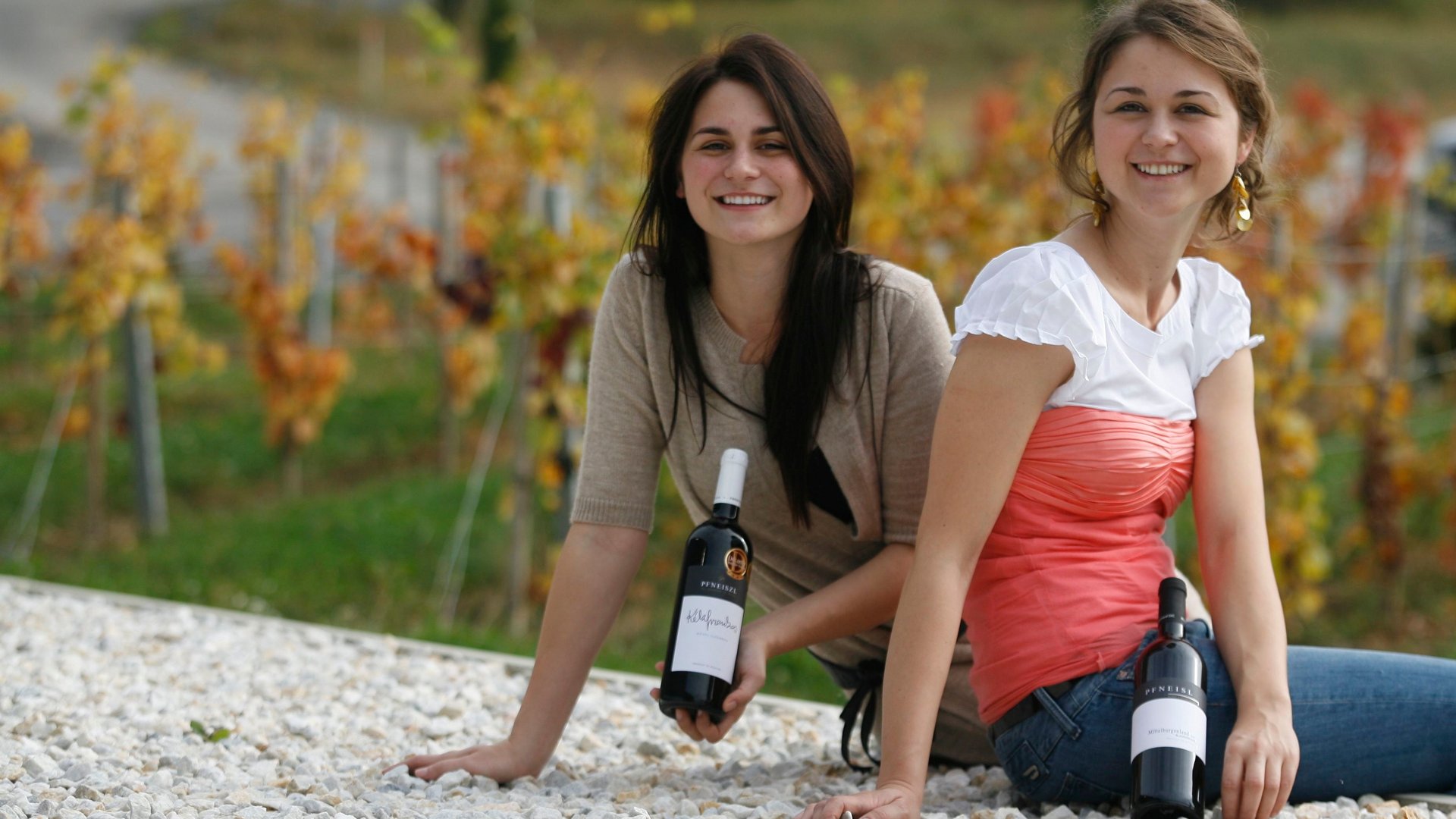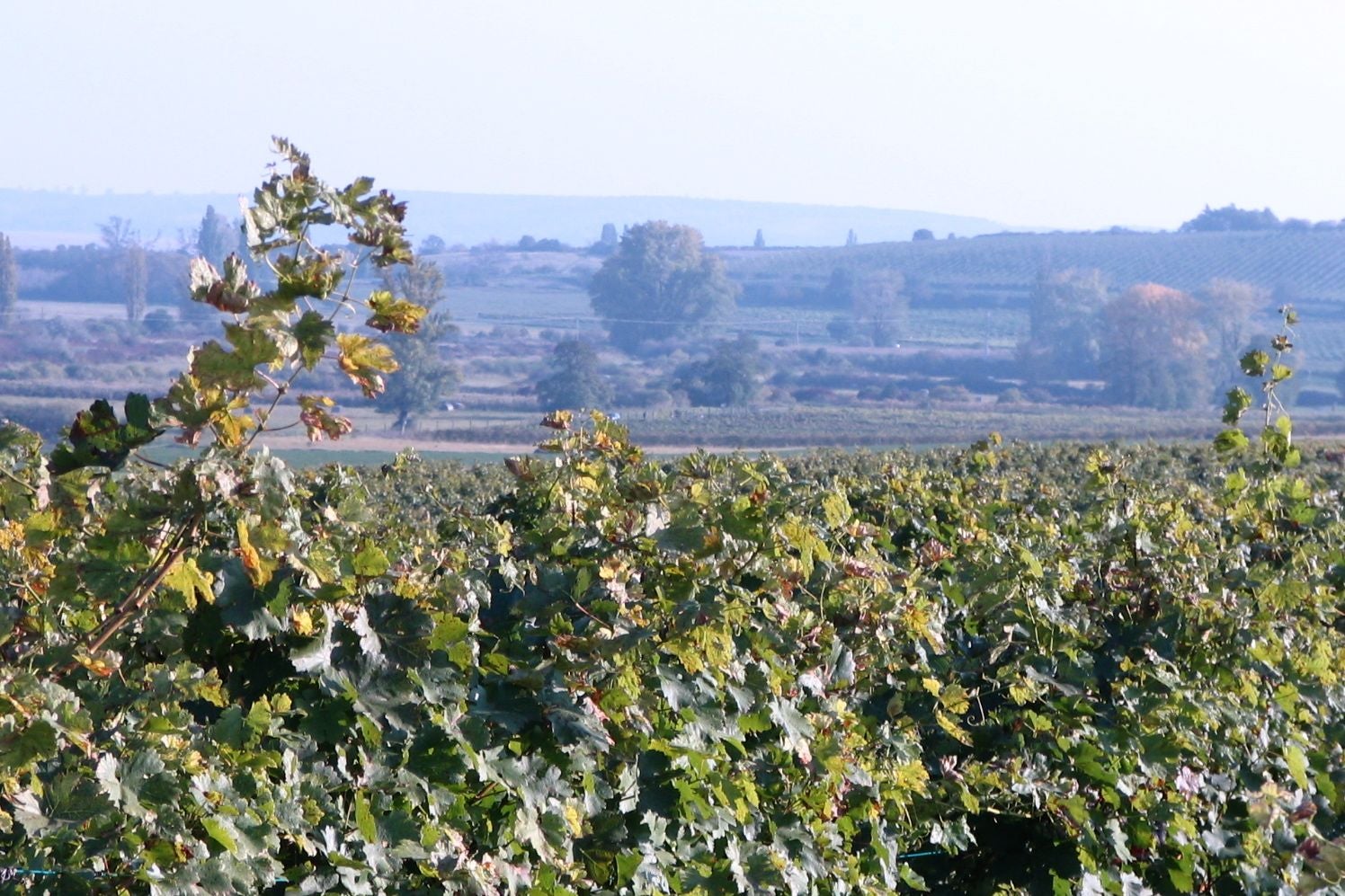Expat Hungarian sisters run flourishing vineyard bought with reparations
This article is part of a series on the 2012 wine harvest and how certain vineyards have been coping with the effects of global climate change on the notoriously temperamental wine grape. Quartz also wrote about vineyards in Burgundy, France, with more to follow.

This article is part of a series on the 2012 wine harvest and how certain vineyards have been coping with the effects of global climate change on the notoriously temperamental wine grape. Quartz also wrote about vineyards in Burgundy, France, with more to follow.
Paradise lost and regained
The Pfneiszl winery in Sopron, Hungary (near Lake Neusiedl) has a romantic history. The family had been viticulteurs in that part of Hungary since the 18th century, but their lands were seized in 1921 following a radical populist land reform on the part of Prime Minister Pal Teleki, during a period of great upheaval in Hungary. The Pfeiszl family emigrated to Austria, where the family lived as Austrians for three generations.
In 1993, after the fall of communism, the Pfneisl family received reparations from the post-Iron Curtain Hungarian government. The funds provided them the means to buy back a vineyard in the same area, though not the very same lands as before. They started from scratch and had their first harvest in 2002.
Birgit, age 29, and sister Katrin, age 25, have been running the family vineyard since 2006, though for Birgit the decision to help run the Pfneisl vineyard was the end of an Odyssean journey. She studied oenology in Austria, having a mind to get away from home – “the farther the better.” She did internships in Napa Valley, Italy, Chile, New Zeland, and Australia, but returned to her family in the end. “I really want to stay here and take care of my own terroir,” she says. The weather can be cold and unforgiving, but that, she says, is part of its charm. “Our philosophy is that every year is different. We don’t try to make a wine like the previous year’s. When I was working in Australia, I learned that their wines are not so different from year to year. It’s important to have these variations.”
Name of Estate: Pfneiszl
Region: the south bank of Neusiedl in the wine growing region near Sopron, Hungary
Size of estate: 13 hectares
Owned by: the Pfneisl sisters (the family dropped the “z” in the name upon emigrating to Austria, though the name of the vineyard now bears the original Hungarian spelling), Birgit and Katrin
Family owned since: 1993
Grape varieties: Cabernet Sauvignon, Merlot, Kékfrankos, Shiraz
Flagship wine: Mesés Vidék (Fairyland, red), 100% Kékfrankos. Retail: €80 ($103.85)
Soil composition: ”Parabraunerde, Sandstein, Gneis“: luvisol, sandstone, gneiss

This year’s harvest: mid September
Last year’s harvest: mid September
Average annual yield: 70,000-80,000 bottles
This year’s yield: between 30% and 40% less
Typical annual revenue: chose not to disclose
This year’s weather: “My mother was in the vineyard one day in July when suddenly it began to hail,” vineyard manager Birgit Pfneisl told Quartz. “Within five minutes, 40% of the wine grapes were destroyed. The worst part was when you’re witnessing it and can’t do anything about it.”
“We have only been making wines in this region since 2002, but neighboring winemakers say they have never seen hail this bad,” says Pfneisl.
Global Climate Change: ”I do think this odd weather might be a result of global climate change. And no, I don’t agree with what some others say, that this is a good thing,” she says.
Hotter temperatures as a rule lead to higher levels of sugar, which translates directly into alcohol. To some, this is hardly a drawback, but Birgit Pfneisl takes the matter seriously: “When the alcohol level starts to get as high as 14% or 15%, it’s no longer characteristic of that wine style. It becomes a different style. Its fruit and character are more enhanced at lower levels of alcohol.”